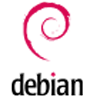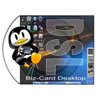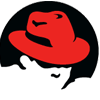Note: I changed the title of the article from “Etymology of A Linux Distro” to the current because a lot of readers pointed out that it’s not appropriate to have BSD systems, and rightly so, on a Linux list.
Computing is fun! Well at least thats until Microsoft drove it out of the equation. I mean with Windows everything is just bland, monotonous, and just ordinary. Even it’s name is such a snooze-fest! The whole idea of window computing by no mean exclusive to Microsoft, it has been around for quite some time, one could argue that it isn’t that “earth shattering” of an invention. So why name your flagship product after a technology that’s not yours and has been around for quite sometime? Beats me! On the other hand, another company that actually puts the fun back into computing, also has a stupid name; Apple. Huh? Isn’t that the first word one learns in first grade “A is for Apple.” I could say or think “apple” without stirring any emotions or thoughts whatsoever, go ahead try it. Think Apple.
On the flipside of things, there is a whole different world of OS names, some are funny, some are insightful, some are romantic, others are cute, some are too small to fill their creators’ huge egos, and finally some are like their proprietary rivals, just boring. So if you ever wondered what your favorite Linux distro means, you will probably find the explanation here. (or BSD, I know they are not the same but I decided to add to the diversity of this article.)

1- Ubuntu
The meaning of Ubuntu is pretty much known by everybody in geekdom, just in case you have been living under a rock, Ubuntu.com definitions is: “Ubuntu is an African word meaning ‘Humanity to others’, or ‘I am what I am because of who we all are’. The Ubuntu distribution brings the spirit of Ubuntu to the software world.”

2- PCLinuxOS
Pretty much obvious, 3 words jammed up into one, PC + Linux + Operating System. PCLinuxOS has a GUI that resembles Windows, in an effort to make switching to Linux easier. Hence the use of the word PC (even though PC is not exclusive to Windows, which is a misnomer.
Update: PCLinuxOS was named after the pclinuxonline website and forums.(Thanks subgeniusd and bob l)

3- openSUSE
openSUSE is the SUSE community project sponsored by Novell and AMD. SUSE is an German acronym for “Software und System Entwicklung” (“Software and system development”). However some claim that it’s a tribute the computer engineer Konrad Zuse.

4- Fedora
Fedora is a community Linux project sponsored by Red Hat. The name “fedora” is derived from the fedora that the shadowman is wearing in the Red Hat logo. (see below)

5- Mandriva
This Linux distro was the original Mandrake Linux distro, which was maintained by MandrakeSoft, however MandrakeSoft lost a legal battle against Hearst Corporation over the name “Mandrake”. MandrakeSoft later on bought Connectiva, the result of the fusion = Mandriva :)

6- Sabayon
Sabayon is a distro produced in Trentino, Italy and is named after an Italian dessert also called Sabayon. Sabayon (or Zabaglione) is made of egg yolks, sugar, and sweet liquor.

7- Debian
Debian was first introduced by Ian Murdock in 1993. The name itself is a portmanteau of his girlfriend (now x-wife) Debra and his name Ian.

8-Damn Small Linux
Damn Small Linux is a very small Linux distro with the size of only 50 MB. Hence the name. Like Duuuuh :P

9- MEPIS
According to the original creator of MEPIS, Warren Woodford, MEPIS orginally didn’t mean anything, he just misheard a friend on a bad Skype connection, and liked the name!

10- FreeBSD
FreeBSD is not exactly a Linux distro, it’ more like a sibling of Linux, and it ranked 11 on distrowatch. BSD is a Unix derivative developed by the University of Califrnia at Berkeley, BSD itself is an acronym for Berkeley Software Distribution. FreeBSD is the free branch of the Berkeley Distro.

11- CentOS
CentOS is based on Red Had Enterprise Linux (RHEL), it basically stands for Community Enterprise Operating System.

12- Dreamlinux
Dreamlinux is a Brazilian Linux distro based on Debian and looks very similar to Apple’s MAC OSX. I don’t really think there is a real reason behind the name. Just mashed up “dream” and “linux” together, talk about orginal! Sorry guys.

13- Puppy Linux
Puppy Linux is a small live CD distro that focuses on ease of use. This distro has it’s own mascot called “Puppy” which is a real Chihuahua.

14- Zenwalk
This one kinda stumped me. Visiting their website I was greeted with the tagline “ever tried zen computing?”, so the Zen part is pretty much explainable. But walk? The logo of dolphin? Do dolphins even walk? LOL. Well I e-mailed JP Guillemin, the creator of the distro, asking him for an explanation. His answer was wicked:
“Hi, Zenwalk is intended to sound (and mean) similary as Nextstep, the famous OS created by Steve Job when he was fired by Apple ;)”

15- Slackware
Slackware was created by Patrick Volkerding. Slackware initially was a private side project, and to prevent it from being a serious one, Patrick named it “slack.” In reference to the term slack from the Church of SubGenius (Thanks to the many who pointed this out) The kinda name stuck :).

16- Knoppix
Knoppix is a Debian based Live CD distro developed by Klaus Knopper and named after him.

17- Gentoo
Gentoo is a source code based distro, meaning that everything is compiled from scratch, which contributes to it’s speed. This fact prompted to a name change (originally Enoch) to Gentoo, which is the fastest swimming penguin. Oh and since this is a naming topic, I actually convinced a friend of mine to name her cat “Gentoo”, how cute is that?

18- Slax
Slax is a live CD distro based on Slackware, and from it comes the name. Nothing interesting here, move along.

19- Sidux
Sidux is a Linux distro based on the unstable branch of Debian which is codenamed “Sid”, which in turn is named after the Sid Phillips character in Toy Story – usually destroys and tortures his sister Hannah’s toys. You see, geeks do have a sense of humor ;).

20- Ubuntu Studio
Ubuntu Studio is just a special derivative from Ubuntu geared to general multimedia production.

21- PC-BSD
PC-BSD is a BSD based distro. It aims to be easy to install by using a graphical installation program, and easy- and ready-to-use immediately by providing KDE as the default, pre-installed graphical user interface, hence adding the “PC” prefix. Pretty unoriginal if you ask me.

22- Xubuntu
Whats up with all these Ubuntu derivatives? Sheeesh…Xubuntu is just XFCE + Ubuntu. Next!

23- Foresight
Foresight is a Linux distro that uses Conary as a package manager, it allows rolling updates, rather than the 2 big releases a year most distros do. For example, when banshee 1.0 comes out next month Foresight users will have it in less than a week, while Ubuntu users will wait until October (Thanks to pcutler from the forsight IRC channel for explaining this). Anyways, with Conary, Forsight in a sense gets software you otherwise will have to wait for in other distros, pretty neat ;).

24- DesktopBSD
From the site: “DesktopBSD aims at being a stable and powerful operating system for desktop users.” Meh.

25- Red Hat
This one has some really interesting stories behind it, I’ll leave the floor to Red Hat co-founder Bob Young to explain:

26- OpenGEU
OpenGEU was originally Geubuntu, which is a distro based on Ubuntu but uses GNOME and Enlightenment as window manager, the “G” and “E” stand for this combo. But due to some legal boo-haa it was changed to OpenGEU.

27- Elive
This one is just a Debian based live CD that also uses Enlightenment as a window manager.

28- Freespire
In August 2005, a distribution Live CD based on Linspire’s source pools named Freespire hit the web by accident. It later evolved to become it’s own distro. Linspire also has a interesting tale behind it’s name. Linspire originally was “Lindows” but some spoiled brat in the Microsoft legal department decided that “Lindows” infringes on their “Windows” brand and decided to sue. Microsoft’s case didn’t really hold water in court, so Microsoft decided to settle and pay $20 million for Lindows to change to Linspire.

29- Frugalware
I couldn’t find any documented reason, but it’s probably taken from the frugality philosphy. According to Wikipedia:
“Frugality in the context of certain belief systems, is a philosophy in which one does not trust, or is deeply wary of “expert” knowledge, often from commercial markets or corporate cultures, claiming to know what is in the best economic, material, or spiritual interests of the individual.”

30- Fluxbuntu
Again with Ubuntu? Just an Ubuntu based distro that uses Fluxbox as it’s window manager.

31- Xandros
Xandros’s name is derived from the X Window system and the Greek island Andros.
Edit: Mike Bego, one of the founders of Xandros, commented below and after a couple of E-mails we arrived to this conclusion: Will Roseman (co-founder) chose Andros island because he thought of Andros in the mythological context relating to “Isle of Man”. Isle of Man was, according to one legend, where man was born. So the Andros part would be where desktop Linux was born. Mike also denied that the distro was named after the X Window System, he added the X just because it improved the sound/image of the name.

32- TinyME
TinyME is a small light-weight version of PCLinuxOS, it’s derived from two words; “tiny” and “me”

33- gOS
gOS is an Ubuntu based distro that has tight integeration of Google apps, the “g” stands for Google if you haven’t figured it out yet. gOS stands for ‘Good OS LLC’ which is the name of the company behind the distro. (Thanks to konradc from stumbleupon for pointing this out)

34- Backtrack
Backtrack is security testing and penetration detection distro with a collection of security and forensics tools. The name is derived from this fact; “back tracing” the intruders.

35- Mint Linux
Clement Lefebvre from the Mint team has replied to my Email saying the following:
“Linux Mint was a website dedicated to Linux with tutorials and articles about other distributions and applications. At the time it wasn’t a distribution itself. “Mint” was fresh, it connoted quality, it was easy to spell and to remember and it also vaguely had something to do with the cold and icy surroundings of our beloved penguins :)”
So there you have it, 35 of the top Linux distros out there, and how they got their names. I hope that I got most if not all main stream distros, if I missed any or think that I missed your favorite distro please comment or e-mail me.